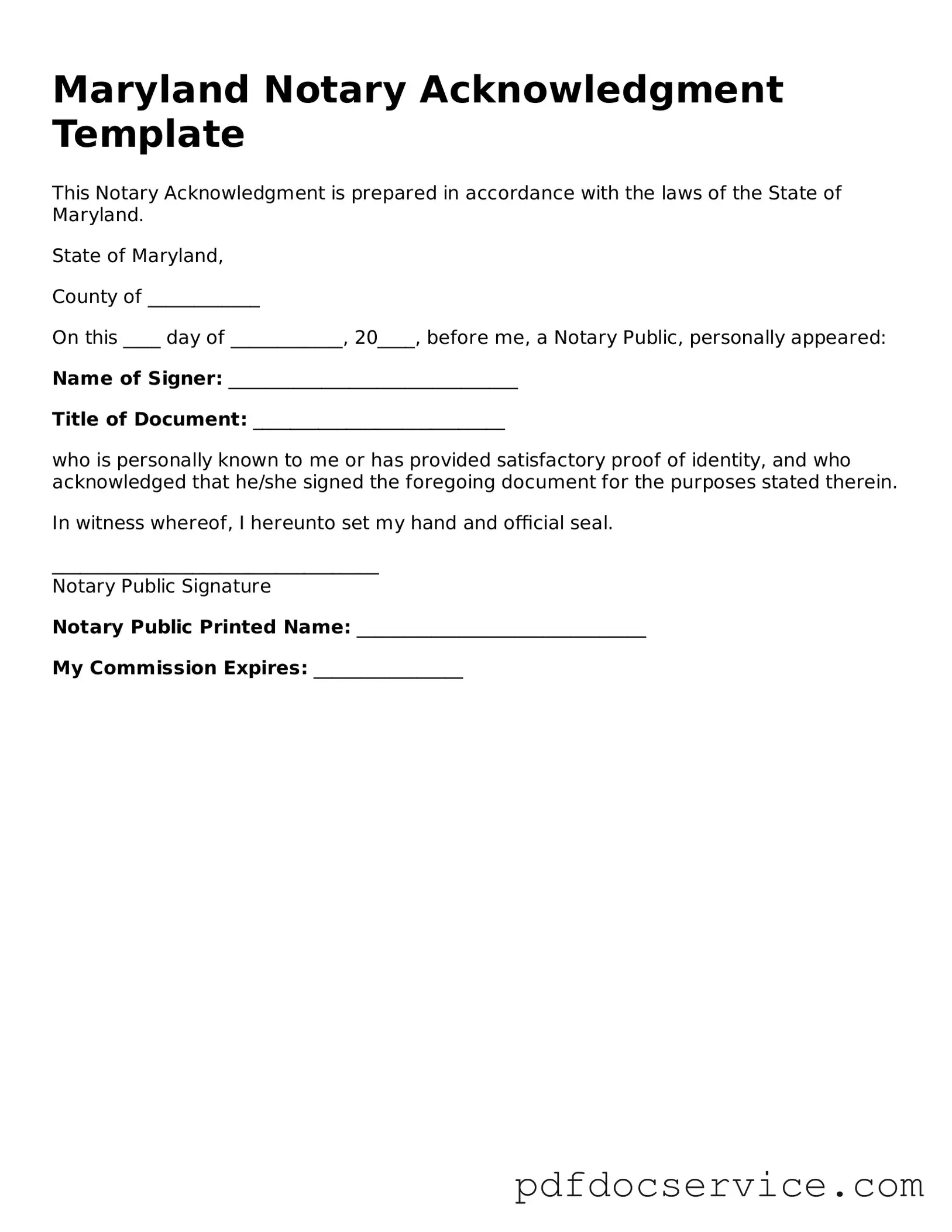The Maryland Notary Acknowledgement form is a document that verifies the identity of a signer and confirms that they willingly signed a document. This form is often used in legal and financial transactions to ensure that the signatures are authentic and that the signers understand the contents of the documents they are signing.
When do I need to use a Notary Acknowledgement?
A Notary Acknowledgement is typically required in situations where a legal document needs to be recorded, such as:
-
Deeds
-
Mortgages
-
Powers of Attorney
-
Contracts
In these cases, a notary public must witness the signing of the document and complete the acknowledgement form to validate it.
Who can act as a notary public in Maryland?
In Maryland, a notary public must be at least 18 years old, a resident of Maryland or employed in the state, and must complete the application process. This includes passing a background check and taking an oath of office. Notaries are appointed by the Maryland Secretary of State.
The Notary Acknowledgement form generally requires the following information:
-
The name and address of the notary public.
-
The name of the signer.
-
A statement confirming that the signer appeared before the notary.
-
The date the acknowledgement was made.
-
The notary's signature and seal.
This information helps ensure the authenticity of the document and the identity of the signer.
How does a notary public verify the identity of a signer?
A notary public typically verifies the identity of a signer by examining a government-issued photo ID, such as a driver's license or passport. The notary may also ask questions to confirm that the signer understands the document they are signing. This process helps prevent fraud and ensures that the signer is acting voluntarily.
Is a Notary Acknowledgement the same as a Notarization?
While related, a Notary Acknowledgement is a specific type of notarization. Notarization can refer to various acts performed by a notary public, such as witnessing a signature, taking an oath, or certifying a copy of a document. Acknowledgement specifically confirms that a signer has appeared before the notary and acknowledged their signature on a document.
Can a notary public refuse to provide an acknowledgement?
Yes, a notary public can refuse to provide an acknowledgement if they have concerns about the identity of the signer, the signer's understanding of the document, or if the document appears to be incomplete or fraudulent. Notaries have a responsibility to act ethically and ensure that the process is legitimate.
What should I do if my Notary Acknowledgement is rejected?
If your Notary Acknowledgement is rejected, first ask for the reason. It could be due to missing information or a problem with the identification. Once you understand the issue, you can take steps to correct it. This might involve obtaining proper identification or ensuring that all required information is included on the form before seeking another acknowledgement.
How long is a Notary Acknowledgement valid?
A Notary Acknowledgement does not have a specific expiration date; however, its validity can depend on the context in which it is used. For legal documents, the acknowledgement remains valid as long as the underlying document is still in effect. It is important to check with relevant authorities or legal counsel if there are any concerns regarding the validity of a specific acknowledgement.

